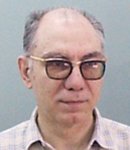|
Plenary
Lecture
Fuzzy Multicriteria analysis for Optimal Choice of
Oil/NG Pipelines Routing – A Knowledge Based Approach

Professor Fragiskos Batzias
Laboratory of Simulation of Industrial Processes
Department of Industrial Management and Technology
University of Piraeus
Piraeus, Greece
E-mail:
fbatzi@unipi.gr
Abstract: Numerous projects of oil and natural gas
(NG) supply chain are under construction worldwide for
the establishment of new networks and facilities or for
the extension of existing ones. From these projects,
each one maintains its own design philosophy and
technological concept. However, for managers and
engineers, the selection of an optimum supply route
demonstrates an essential techno-economical decision
making problem associated with security of supply,
environmental acceptance, investment cost and future
networking. In practice, this problem is managed in
pre-construction initiations, when feasibility and
planning of projects are elaborated. This presentation
considers a framework, under the form of an algorithmic
procedure, for the evaluation of supply routes and
decision-making. Problems of the framework, related with
low availability of critical technical information and
deficiencies of engineering companies to manage their
corporate knowledge, are reported. A multicriteria
analysis methodology, based on a Delphi technique for
experts’ knowledge elicitation and quantification, is
proposed as a practical solution to face the problems
and to support the decision making process. A case study
demonstrating applicability of the proposed methodology
by using a fuzzy PROMETHEE version is also presented,
examining several alternative solutions associated with
the expansion of the inland natural gas supply chain in
Greece. It is proved that the methodology suggested (i)
allows elicitation and transforming of experts’ tacit
knowledge to explicit (quantitative), by using
questionnaires for scoring of criteria and alternative
solutions, (ii) overcomes problems of experts’
unavailability through submission and recollection of
questionnaires over long distances (by applying Delphi
method techniques), (iii) reduces utilization of
improper know-how from poorly maintained technical
archives, (iv) enables less dependence on know-how and
technology transfer collaborations, as mainly focused in
utilizing captured tacit knowledge of experts; (v)
anticipates limitation in economic and technological
collaborations, since, at pre-construction phases, the
budgets are limited and the time constraints pressing;
(vi) allows incorporation of knowledge intensive
criteria like know-how acquisition requirements and
know-how diffusion perspectives.
Brief Biography of the Speaker:
Prof. Fragiskos Batzias holds a 5years Diploma and a PhD
degree in Chemical Engineering, and a BSc in Economics.
He has also studied Mathematics and Philosophy. He is
Director of the Laboratory of Simulation of Industrial
Processes and Head of the Research Group on Systems
Analysis at the Department of Industrial Management and
Technology of the University of Piraeus, Greece. He is
teaching at the interdepartmental postgraduate courses (i)
Systems of Energy Management and Protection of the
Environment, running by the University of Piraeus in
cooperation with the Chem. Eng. Dept. of the Nat. Tech.
Univ. of Athens, and (ii) Techno-Economic Systems,
running by the Electr. & Comp. Eng. Dept. of the Nat.
Tech. Univ. of Athens in cooperation with the University
of Athens and the University of Piraeus. His research
interests are in chemical engineering systems analysis
and knowledge based decision making. He has >100
publications in highly ranked journals and conference
proceedings, including 29 research monographs in
collective volumes, with 171 citations and an h-index of
8 (for the period 2004-2011, source: ISI Web of Science,
Thompson Scientific; self-citations have been excluded).
He has participated (and chaired after invitation from
the organizers) in prestigious international
conferences, such as those organized periodically by the
IEEE, the European Federation of Chemical Engineering (EFCE),
the DECHEMA, CHISA, WSEAS Organizations. He organizes
the annual Symposium on Industrial and Environmental
Case Studies running successfully since 2004 within the
International Conference of Computational Methods in
Sciences and Engineering (ICCMSE).
|
